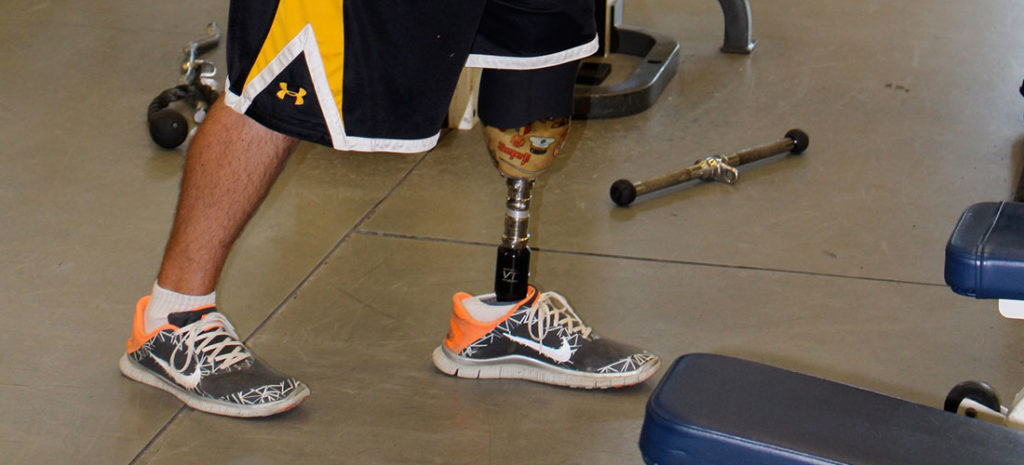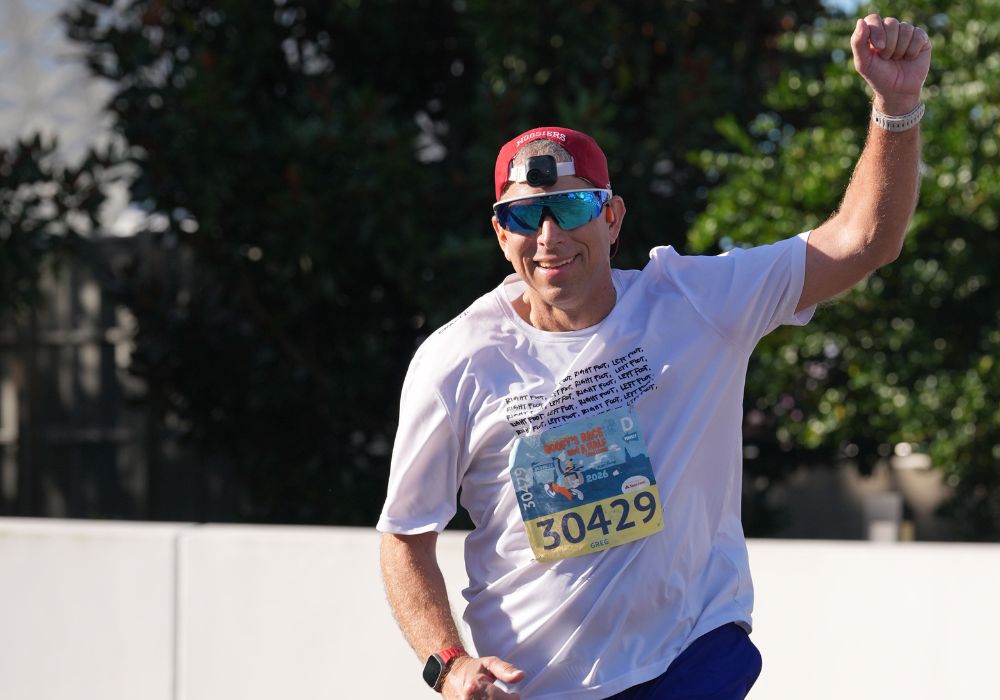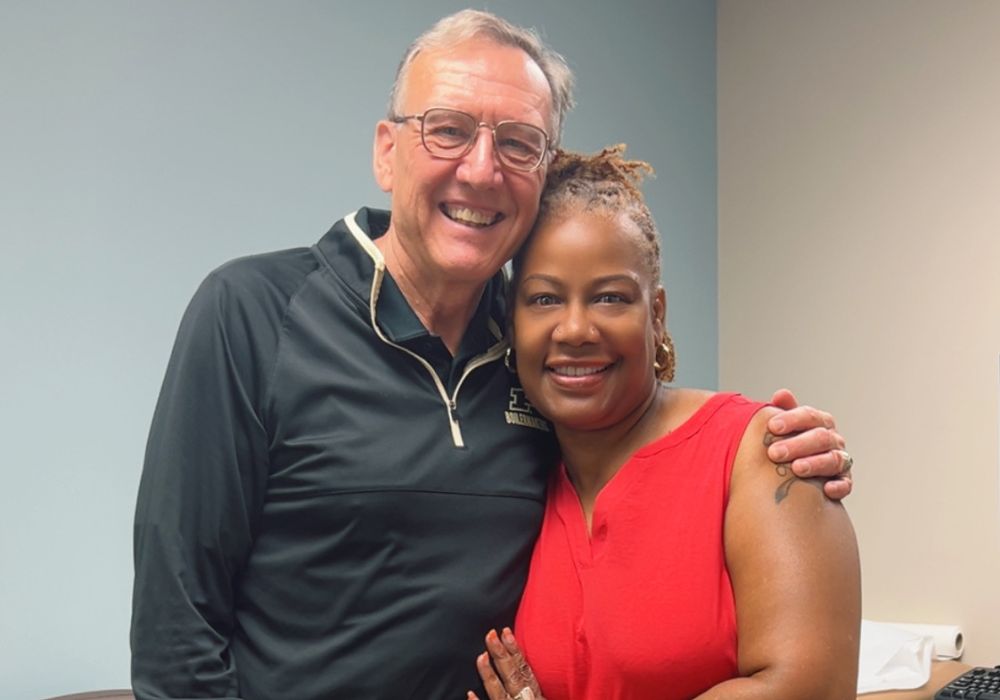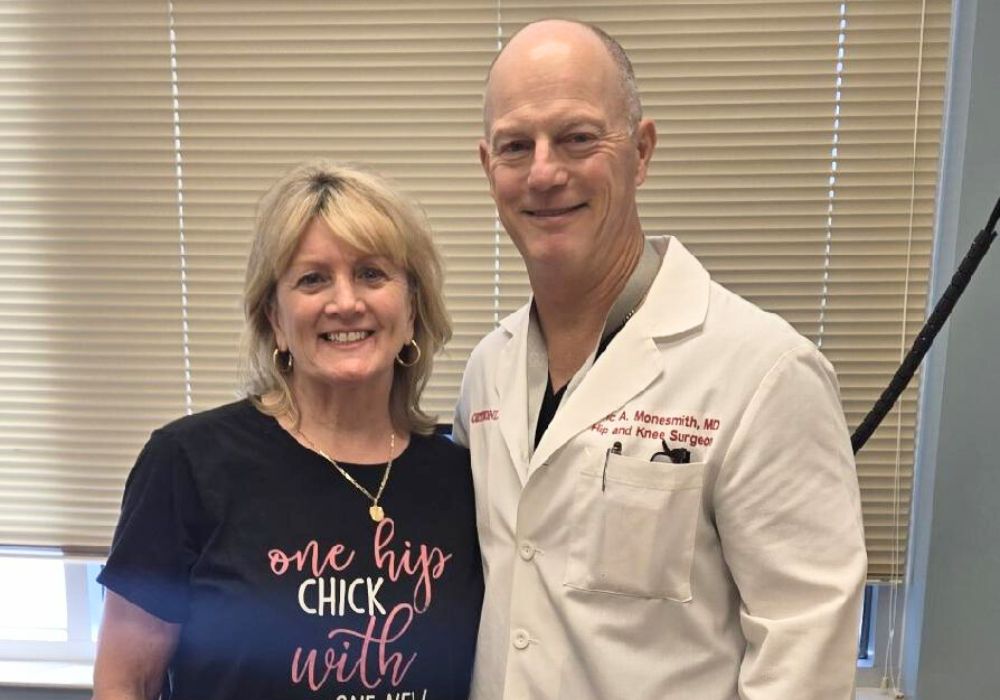An officer takes cover behind a car; his arms tense as his finger gently rests on the trigger of a gun. The heart beats quickly as the mind focuses on the mission: minimize the threat, keep the public safe. The adrenaline pumps through his veins. His ears pick up a voice on the radio, “Armed suspect. Officer down.”
Being a police officer is no easy task. Every time you go on patrol, you put yourself in the heart of danger. The community around you depends on your body as well as your badge; every limb being a necessity.
What happens when a police officer sacrifices his or her body for those they’ve sworn to protect?
On July 26, 2012, Marty Dulworth was on duty with the Anderson Police Department. Around 11 p.m. that night, he received a chilling call. Officers were dispatched to assist the police force in the next town over. Shots had been fired and an officer was down.
Along with several other Anderson officers, Marty sped to the scene to provide backup. He was accompanied by his partner of two years; a Belgian Malinoise police dog named Kilo.
The suspect of the incident had been arguing with his wife after being sent an order of protection. In the middle of the street, the conversation began to escalate. A neighbor pulled up in his car to see if there was a problem. After a few seconds, he noticed that the suspect was armed with 200 rounds of ammunition, a fully automatic weapon, a bulletproof vest and a gas mask. Tempers rose. The neighbor and the suspect got into a heated argument, ending with the armed suspect opening fire. The neighbor was shot in his car and did not survive.
“Within two minutes of getting out of my vehicle, Kilo and I started taking gunfire,” Marty said.
Marty and Kilo took off on foot down an alley in search of the suspect, but were ambushed with gunfire from 12 to 15 feet away. “Everything slowed down,” Marty said. “I could hear him pull the trigger. I could taste the gunpowder that filled the air. I could see the bullet leave the barrel. It was absolutely surreal.”
The first round fired hit Marty’s left ankle, piercing an artery causing major blood loss. The second round hit his right calf. Tragically, Kilo was hit once in the chest. He continued to fight and protect his fallen partner, but did not survive. The gunman then took his own life.
Marty’s police officer brother, Joe Garret, overheard him on the radio by mere coincidence. Joe was off-duty, but happened to be four miles away when he heard Marty had been shot. He raced in his truck to find Marty, quickly applied a tourniquet and transported him to a nearby ambulance. Marty was then taken to St.Vincent Hospital in Anderson, placed in a helicopter and flown to St.Vincent Hospital in Indianapolis.When he arrived, OrthoIndy trauma surgeon, Dr. David Kaehr, was on call.
“I spent 15 days in the hospital and underwent six surgeries,” Marty said. “Dr. Kaehr cleaned my foot over and over. He rebuilt my foot with all the metal it needed.
After surgery
After seven months of recovery and rehab, Marty returned to work full-duty. As he moved forward in law enforcement, he was faced with a different challenge. The constant pain and lack of mobility began to affect his life, not only on the job, but also at home, prompting him to return to Dr. Kaehr.
“I went to a dark, dark place. I was asking questions like ‘who’s going to take care of my family?’ I didn’t want to get out of bed most days because I had a horrible limp and the pain was constant. So I returned to Dr. Kaehr and I told him I was done. I couldn’t deal with the pain anymore.”
Dr. Kaehr had been working with Marty since the beginning of the incident. “The discussion had always been there about amputation. It got relatively serious as he became more active and returned to full-duty,” said Dr. Kaehr. “He was highly motivated, but the pain was becoming a problem.”
After researching procedures and talking with his wife and kids for hours, Marty and Dr. Kaehr decided amputation on his left leg was his best option.
Amputation
On September 3, 2013, Marty arrived at the OrthoIndy Hospital early in the morning. By 9:45 a.m., the lower part of his left leg was successfully amputated. He remained at OrthoIndy Hospital for a few days and was fitted with a prosthetic that he had picked out prior to surgery.
After Marty was given his prosthetic, he underwent six days of therapy before he was released to return to the force. He returned full-duty with no restrictions in December of 2013, and is still serving as a police officer today.
Marty sacrificed his body for those he swore to protect. He made it his mission to recover and return. Marty went so far as to sacrifice his own leg to continue his life’s calling as a police officer. He did it for the community he serves, his family and himself.
“I’m working on training a new K-9 partner named Rico. My life is pain free now. I can do everything I could before the shooting. Dr. Kaehr is a good man. I made a friend for life. He took such good care of me and was so kind to my family. He kept them informed with every surgery.”
Marty also passes sentiment to Dr. Ronald Miller, OrthoIndy physiatrist, saying that he is another good man. “He helped me get through some of the worst pain I have ever experienced. When it was time to come off all of the meds, he knew how to do it and made the process so easy.”
“My advice to young people undergoing a decision like this is if you’re considering amputation, talk to somebody who has gone through it. Find an amputation support group,” Dr. Kaehr said.
Marty gives the same advice to everyone he’s spoken to about this, “I made contact with active people who were amputees. I didn’t want to talk to people that had given up afterwards; I wanted to talk to athletes and fighters. So I did.”
Marty says he wouldn’t change a thing about that night, “I feel like I’m tactically sound, so I’d redo that night over and over the same way. I’m physically stronger now than I have ever been in my whole life,” he said, “Life is great.”
Marty Dulworth extends the offer to anyone who is considering this procedure to speak with him in person. If you would like to contact him, please call 317.802.2425.
To schedule an appointment with Dr. Kaehr, please call 317.917.4367. or learn more about foot and ankle treatment options at OrthoIndy.
Schedule an appointment
Your well-being is important to us. Click the button below or call us to schedule an appointment with one of our orthopedic specialists. If your injury or condition is recent, you can walk right into one of our OrthoIndy Urgent Care locations for immediate care. For rehabilitation and physical therapy, no referral is needed to see one of our physical therapists.





